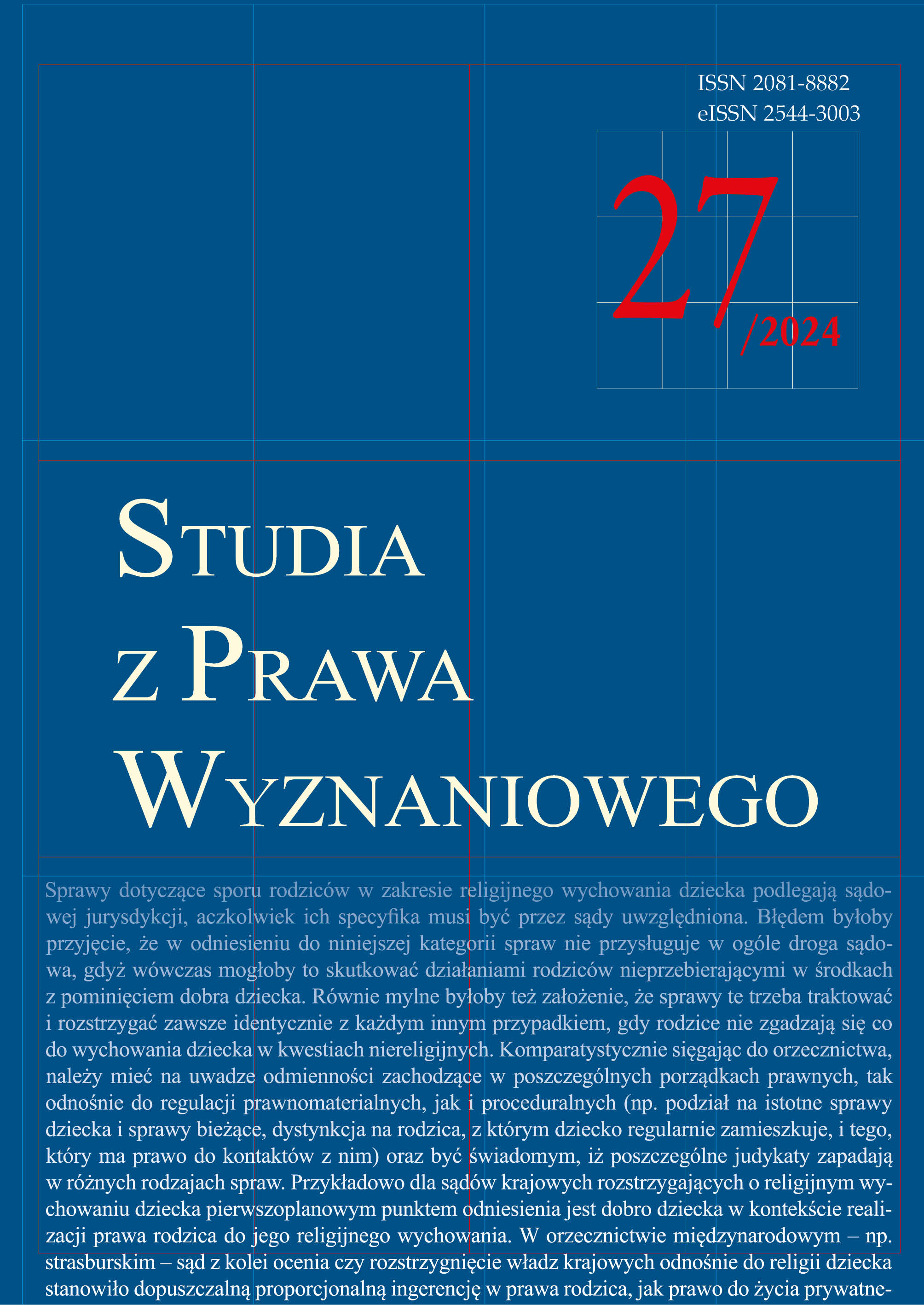Ujawnienie danych osobowych zawiadamiającego o przestępstwie kościelnym. Kazus i jego rozwiązanie
Disclosure of the personal data of the reporter of a Church offence: A case study
Author(s): Maciej Andrzejewski, Piotr KroczekSubject(s): Law, Constitution, Jurisprudence, Civil Law, Canon Law / Church Law, Court case, Administrative Law
Published by: Katolicki Uniwersytet Lubelski Jana Pawła II
Keywords: ochrona danych osobowych; Kościół Katolicki;RODO; dobra osobiste; data protection; Catholic Church; GDPR;personal rights; General Data Protection Regulation
Summary/Abstract: The background for this article is a case study in which parishioners reported their parish priest for allegedly violating canon law by living in concubinage. The accusations turned out to be false, and the alleged concubine demanded that the diocesan bishop reveal the identities of the reporters. The aim of this article is to determine whether it is permissible to disclose the personal data of the person reporting a church offence to the person whom the report concerns or to other individuals. The article examines this issue in light of both canonical law, including the 2018 General Decree of the Polish Episcopal Conference on data protection, and other generally applicable laws regulating personal data protection (Polish and European laws, including GDPR), as well as other regulations protecting personal rights. To answer this question, the authors have employed the legal dogmatic method to interpret provisions on data protection and the comparative method to compare the scope of data protection in Catholic canonical law and Polish law. This paper focuses mainly on the conditions that must be met, in light of the applicant’s factual and legal interest, for personal data to be disclosed. The analysis shows that neither a factual interest nor a legal interest of a spiritual nature sufficiently justifies the disclosure of personal data; it is necessary to prove the applicant’s material legal interest. According to the proposed syllogism, since the applicant in this case has a material legal interest and the report was false and made in bad faith, the diocesan bishop should conclude that the reporter is not protected and should disclose the data in accordance with the request.
Journal: Studia z Prawa Wyznaniowego
- Issue Year: 2024
- Issue No: 27
- Page Range: 411-424
- Page Count: 14
- Language: Polish

